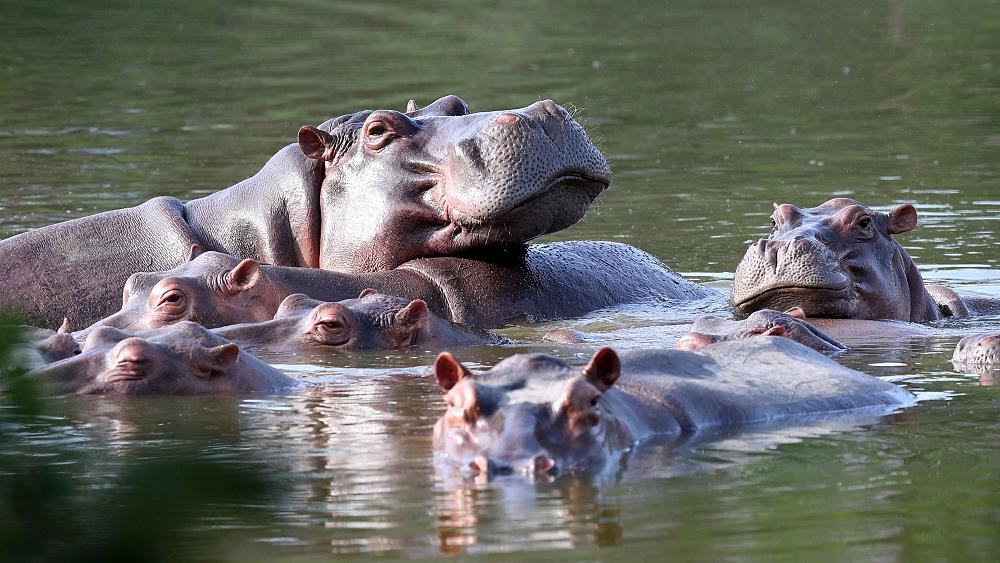
Pablo Escobar, the drug kingpin who reigned over the cocaine trade in Colombia in the 1980s, has left authorities in the country with a conundrum long after his death: what to do with the rapidly expanding hippopotamus population left over from his private zoo.
His sprawling palace in between mountain ranges hosted kangaroos, giraffes, elephants and other exotic animals, but long after the fall of the Medellin Cartel, it is the drug lord’s famous hippos that have persisted in the tropical countryside.
While the other animals died or were relocated after his death, the hippos were abandoned due to the cost and logistical issues of transporting them, due to their size and violence that plagued the area at the time.
Now, without a natural predator, they are thriving in the area around the Rio Magdalena, with their population shooting up in the last eight years from 35 to somewhere between 65 and 80.
Scientists are warning their numbers could reach around 1,500 by 2035 if nothing is done – and that the animals need to be killed.
They warn the animals pose a threat to the area’s biodiversity, and could be a danger to humans – the hippo is after all the deadliest large land mammal for humans.
But the idea of killing the herd has already drawn some criticism and is likely to see more.
There was an outcry years ago when three hippos wandered from the Escobar compound and were causing problems and one was killed by hunters sent after the animals.
The humans in this rural area have embraced the hippos as their own, in part because of the tourist dollars they bring in.
School pupils are used to walking past a sign that reads “Danger — hippopotamus present.”
The scientists began working on the hippo population forecast last year after one of the animals chased and severely injured a farmer. Their study was published in the journal Biological Conservation in January.
Another study last year by researchers at the University of California, San Diego, found the hippos are changing the quality of the water in which they spend much of their time and defecate.
As their population continues to grow, they could end up displacing native animals like the Antillean manatees, experts say.
While David Echeverri, Coordinador of Forest Corporation and Biodiversity of Antioquia agreed that killing the hippos would be the best solution, he said the animals’ magnetic personality and government regulation may never allow it.
After the public criticism erupted more than a decade ago over the killing of the hippo by hunters, touched off by a photo showing soldiers posing with the hippo as a hunting trophy, the government instituted a ban on hunting hippos.
It decided to try sterilisation, but that is a complex and expensive process.
Experts say the government’s attempt to keep down numbers by sterilizing some hippos just isn’t enough.
Related posts:
Views: 0
 RSS Feed
RSS Feed

















 February 10th, 2021
February 10th, 2021  Awake Goy
Awake Goy  Posted in
Posted in  Tags:
Tags: 
















